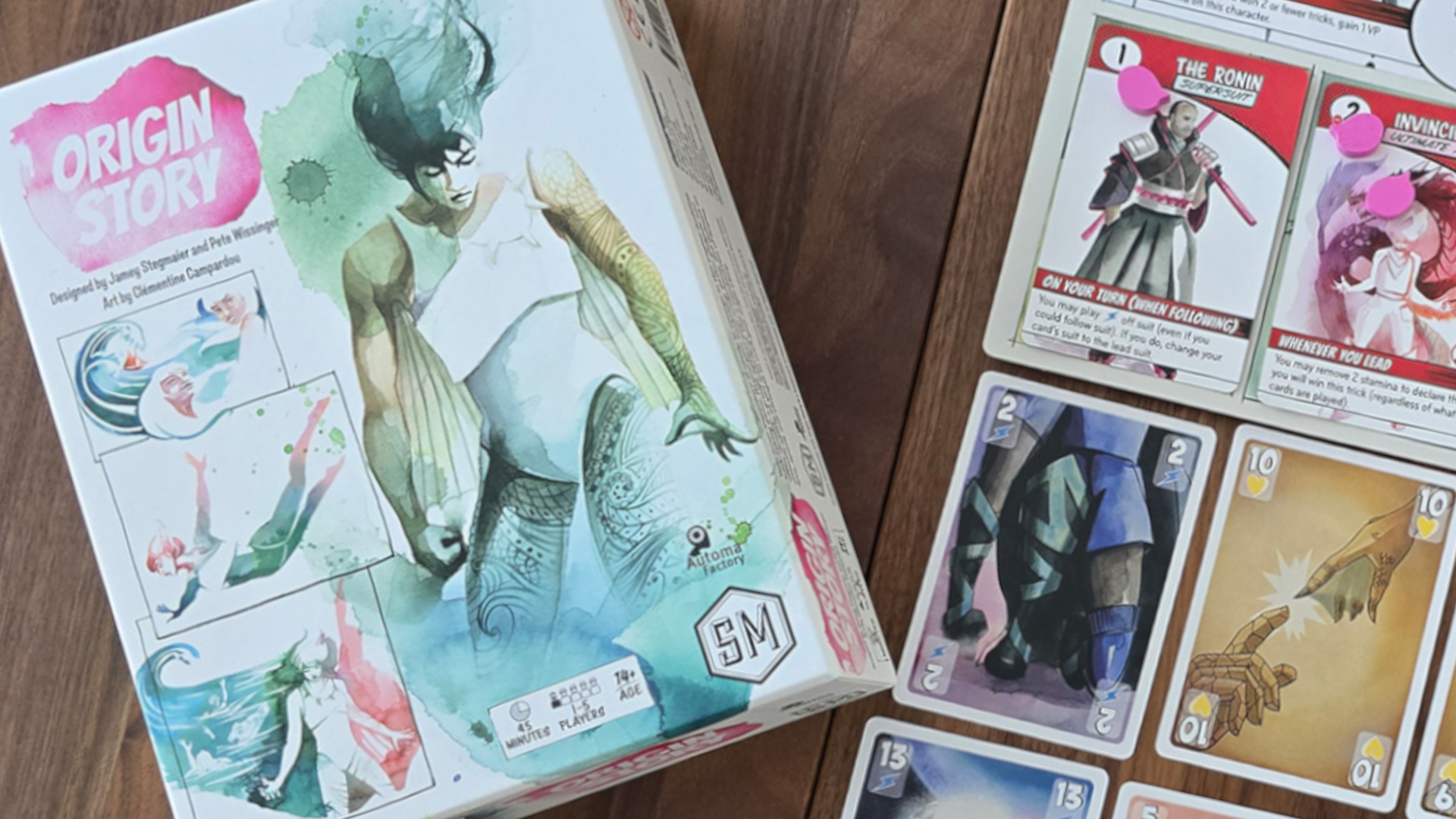Why I Love: Jet Set Radio's skates
I reckon that if most people could suddenly have any video game object in real life - perhaps via wishes granted by some sort of literal Game Genie - they'd probably opt for something like a Super Mushroom, or the Portal Gun, maybe Doom's BFG if they're feeling destructive that day. But not me. I'd have my heart set on something seemingly mundane: those roller skates that all the cool kid ‘rudies' wear in Tokyo-to, the graffiti-covered metropolis from the Jet Set Radio series.
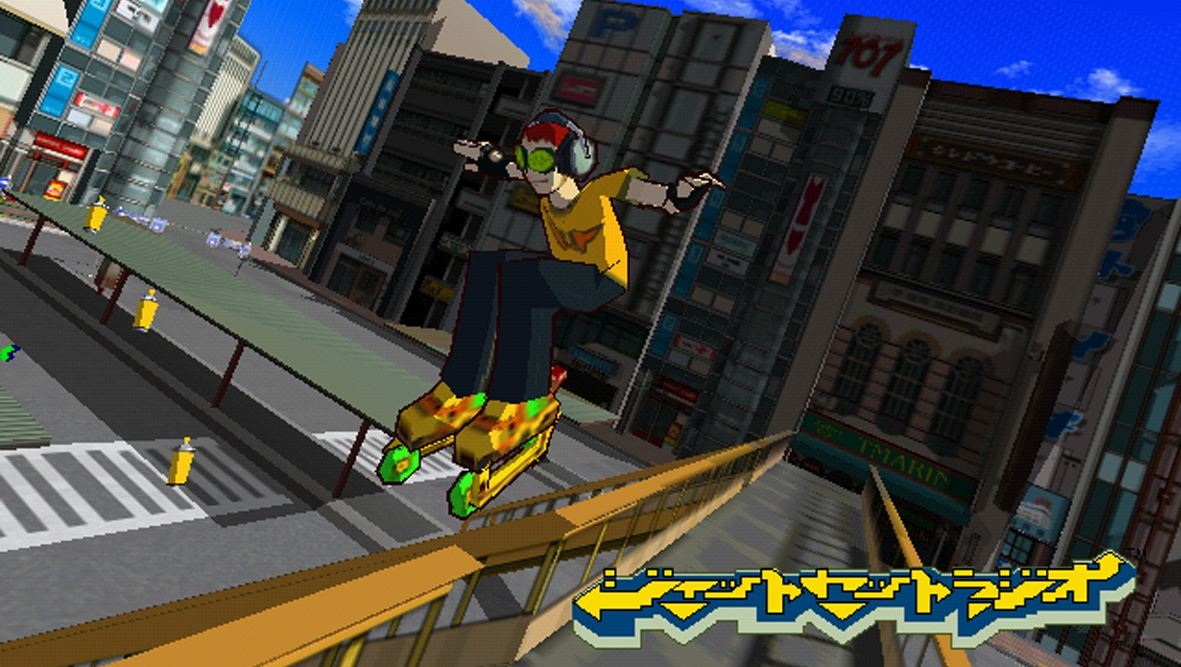
In the grand scheme of these wildly imaginative games, the skates themselves are almost inconsequential. You never buy new pairs, or upgrade the ones you have, or tailor their designs with custom emblems. Each character has their own distinct pair of brightly colored rollerblades by default, and you'll never see them walking around without their personalized wheels. As for any technological lore, they're given nothing more than a half-sentence's worth of description in Jet Set Radio's intro cutscene, courtesy of that lively pirate radio DJ Professor K. "Magnetically driven inline skates powered by newly developed ‘netrium' batteries", he calls ‘em.
And yet, the skates are what make the series' constant, fluid sense of motion and thrilling exploration possible. Building up speed as you pump your legs with a press of a trigger is a deeply gratifying act, your skates clacking loudly against the pavement and blue sparks flying from beneath your feet (surely a side effect of residual netrium energy). You can grind on almost anything, from train tracks to telephone lines, never fearing that you'll lose balance and wipe out like in the Tony Hawk series (must be the magnets). And the occasional glow of your skates' heel-mounted batteries accentuates your gravity-defying grace as you effortlessly backflip through the air, typically with a gang of ornery officers in close pursuit. Maybe if the Rokkaku-backed '21st Century Project' police force had spent its budget on skates instead of attack helicopters and tanks, it wouldn't be eluded by a bunch of impeccably hip teens all the time.
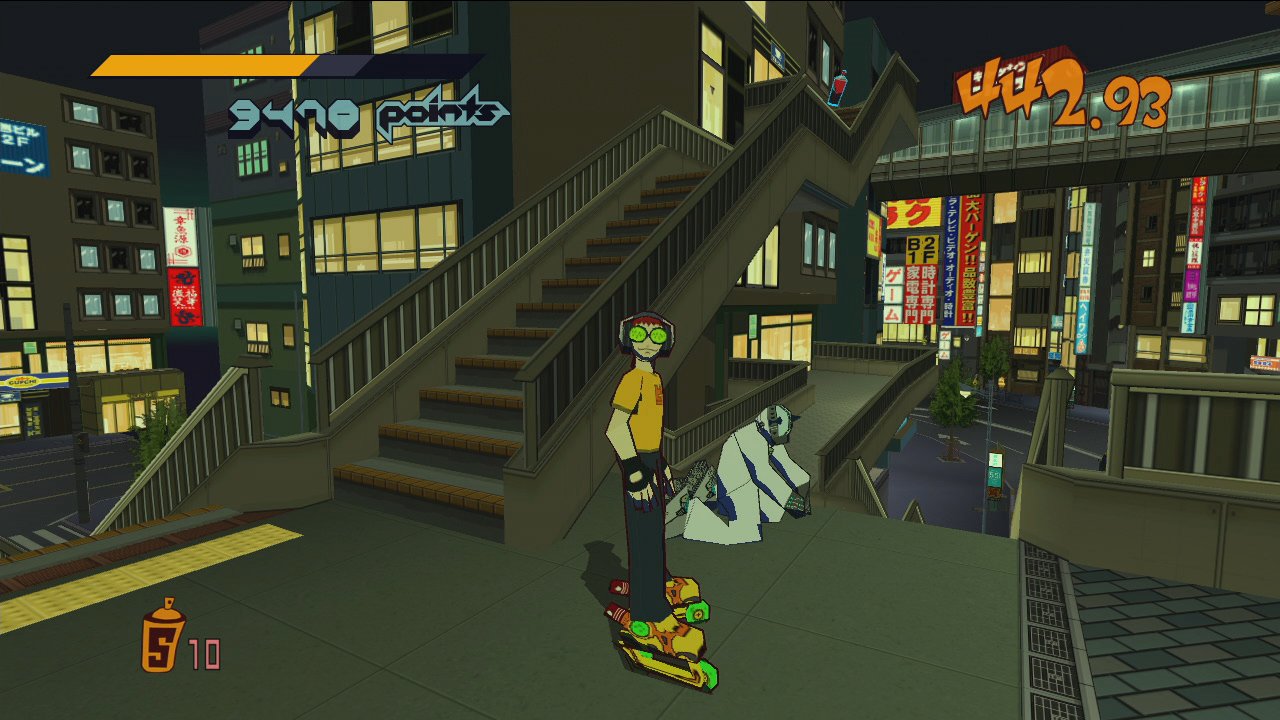
Each pair serves as an expression of their wearer, just as much as any of the stylish graffiti art you use to tag everything in sight. The base design is sleek and streamlined, with no laces or straps to speak of; quite honestly, I have no idea how the GGs even manage to slide their feet snugly into those things. They come in a wild variety of colors, from Tab's neon chartreuse to Mew's azure-on-pink blend, with two prismatic wheels on each foot that are roughly the circumference of a cantaloupe. Some gangs have even decked out their skates to match their aesthetic, with the robotic Noise Tanks rocking treads instead of wheels and Poison Jam members completing their movie-monster ensemble with some scaly, three-toed 'blades. The only thing that any two pairs of skates have in common is their bulkiness, making these young adults look like they're zipping around in size 20 sneakers. Most of the characters have slim, athletic builds, but seeing their feet anchored into these gigantic boots conveys a sense of powerful inertia with their every move.
Jet Set Radio Future takes the skates' exotic design even further, adding exhaust pipes to Beat's 'blades that expel plumes of smoke whenever he uses a boost. But the skates never go so beyond the realm of believability that they yank you out of your immersion in JSR's rich world and its amalgamation of US and Japanese youth culture. Your freedom of movement in Sunset Overdrive feels reminiscent of JSR's 'skate anything' mentality, but your avatar somehow zooms around on their plain shoes (or even bare feet), with the only explanation being a somewhat irksome shrug-and-a-wink through the fourth wall. I've yet to get fully invested in Hover: Revolt of Gamers, a potential successor to JSR's ultra-cool spirit - mostly because I've prohibited myself from buying any more Steam Early Access games, but also because I don't quite understand how its Tron-like shoes let the wearer glide around.
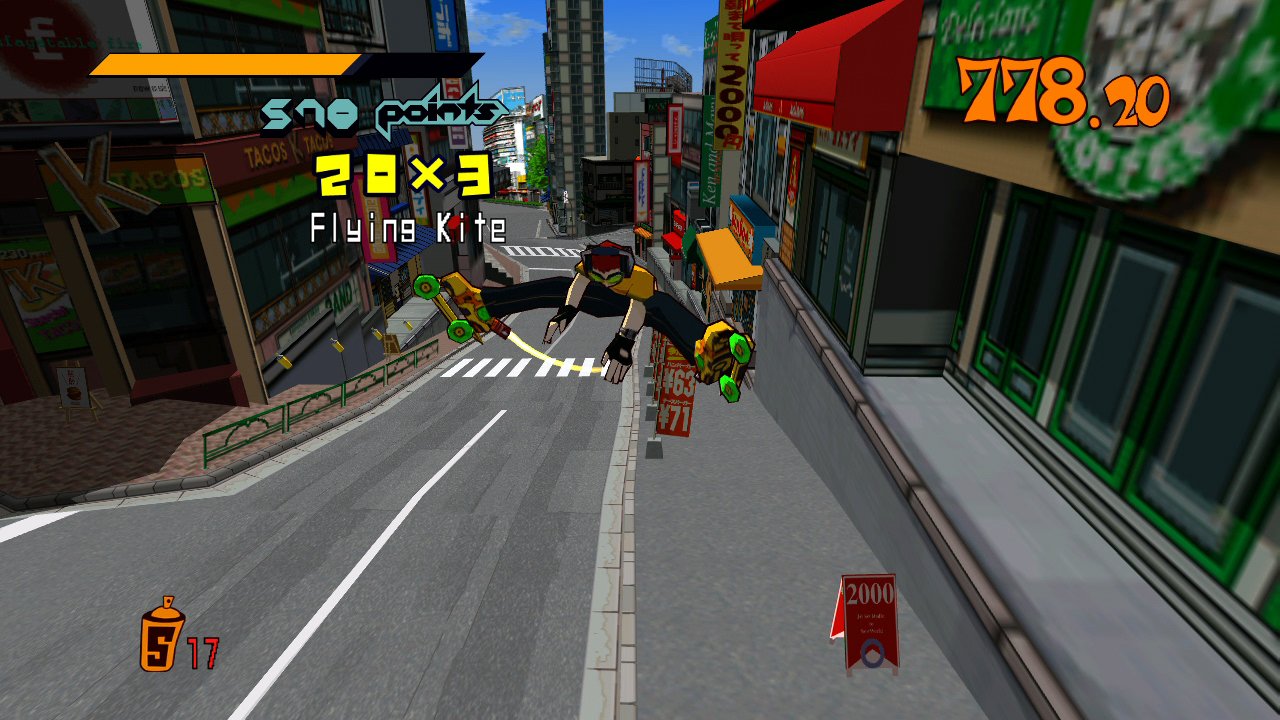
In contrast, JSR's skates always feel somewhat grounded in reality, like the product of a technology that humanity (probably some genius inventor in Japan) is just on the cusp of discovering. There's nothing quite like them in the real world - at least, not yet. 'Aggressive' inline skates are the closest in function, but their form doesn't match, with four dinky wheels on each skate as opposed to JSR's bulky dual rollers. The Kickstarted Acton RocketSkates deliver on the promise of motorized, battery-powered skates, but controlling them currently relies on the static, one-foot-forward stance typical of those Heelys-brand shoes, which, no matter how you slice it, just looks a little lame.
For now, it seems I'll only be able to cruise around in these skates within the virtual realm of Jet Set Radio - and that's just fine by me. These games are extraordinary for a variety of reasons - the vibrant cel-shaded graphic style, killer soundtracks with sublimely eclectic song variety, humongous levels to explore and tag, and the endlessly energetic banter of Professor K, to name a few. But playing just wouldn't deliver the same sense of invigorating dynamism and palpable momentum without those magnetically driven skates and their netrium batteries.
Weekly digests, tales from the communities you love, and more
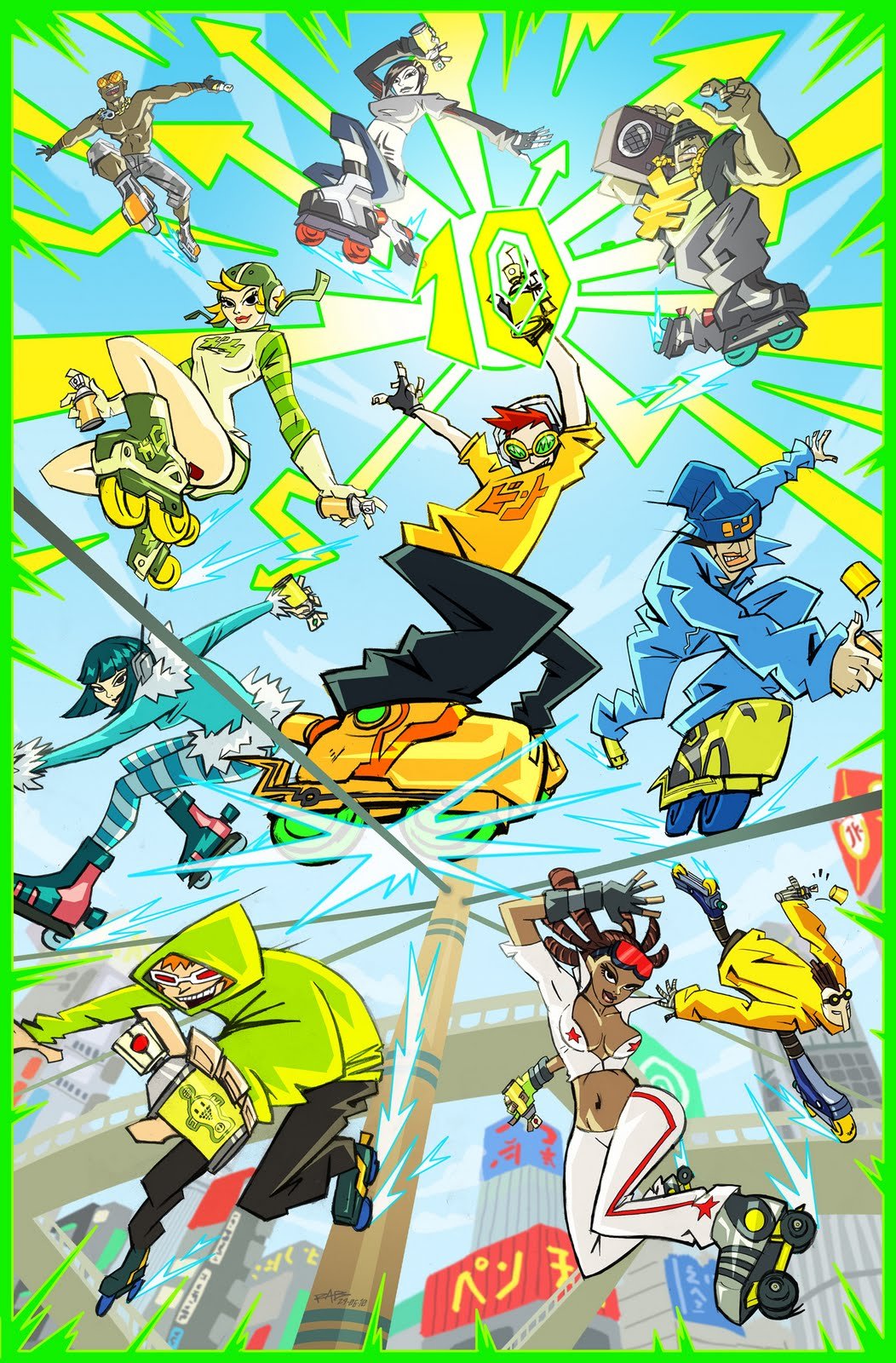
Amazing Jet Set Radio fanart by Ross Burt (ArkadeBurt).

Lucas Sullivan is the former US Managing Editor of GamesRadar+. Lucas spent seven years working for GR, starting as an Associate Editor in 2012 before climbing the ranks. He left us in 2019 to pursue a career path on the other side of the fence, joining 2K Games as a Global Content Manager. Lucas doesn't get to write about games like Borderlands and Mafia anymore, but he does get to help make and market them.
